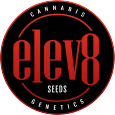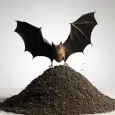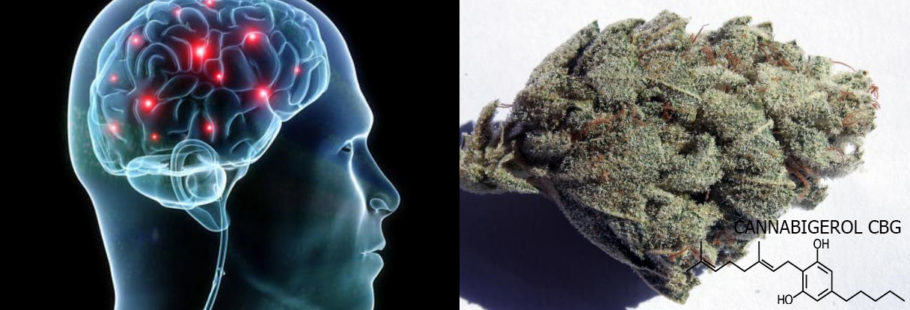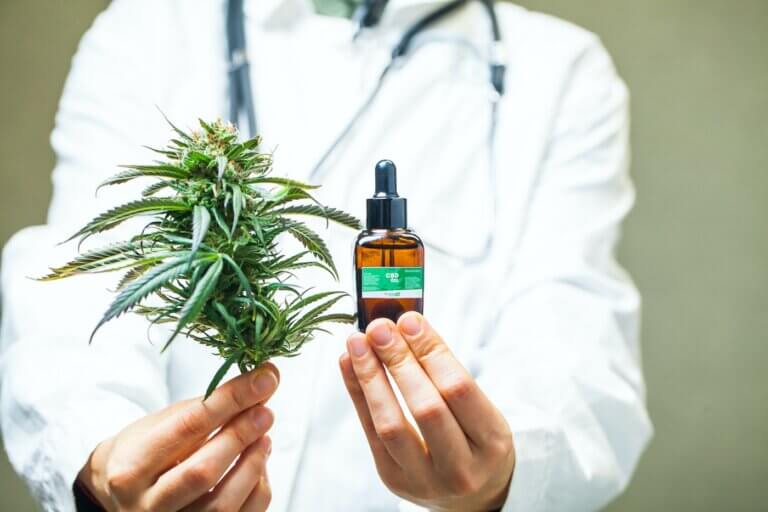THCV, a promising non-psychoactive cannabinoid
List of contents
The cannabinoid tetrahydrocannabivarin (THCV) is one of the chemical components found in the cannabis plant. Although less well known than THC, the main and most popular of the psychoactive cannabinoids, THCV has been the subject of research in recent decades for its potential medical benefits. In this article, we invite you to explore in depth what THCV is, how it works in the human body, and what its potential health benefits are.
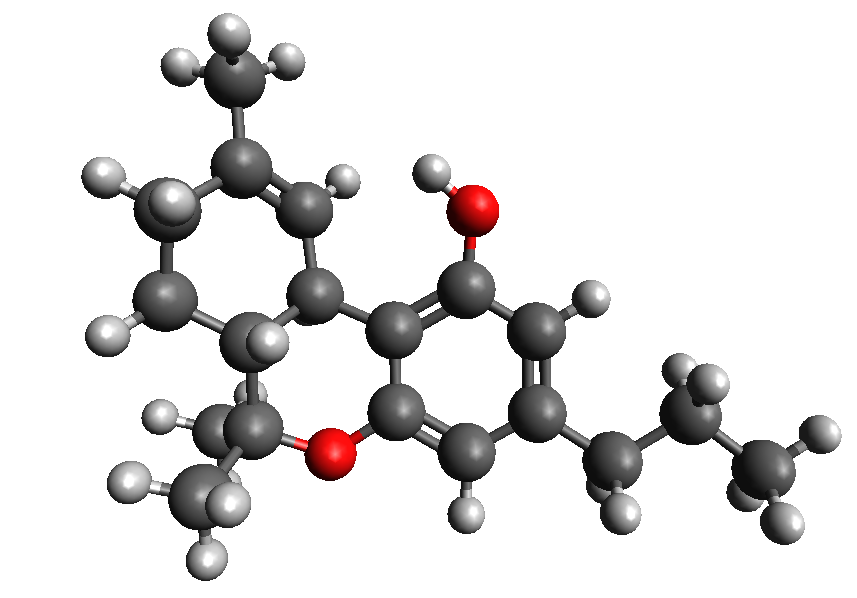
What is THCV?
- Name: Tetrahydrocannabivarin
- Formula: C19H26O2
- IUPAC name: (6aR,10aR)-6,6,9-trimethyl-3-propyl-6a,7,8,10a-tetrahydrobenzo[c]chromen-1-ol
- Molecular weight: 286.41 g/mol
- Boiling point: 220ºC
THCV is a minor cannabinoid found naturally in some cannabis plants, along with other cannabinoids such as THC, CBD, and CBC. It is a non-psychoactive chemical compound that has been shown to have a variety of therapeutic effects on the human body.
Unlike THC, THCV does not cause the typical psychoactive effects associated with marijuana, such as euphoria, mood disturbances, or relaxation. Instead, THCV has a milder effect on the brain and body and is believed to have medicinal properties that could be beneficial for a number of medical conditions. Today we will investigate them in this article.
THCV synthesis route
THCV is naturally synthesized from cannabigerol (CBG), a precursor cannabinoid found in the cannabis plant. During the plant's growth process, CBG is converted - via a series of catalytic enzymes called synthases - into other cannabinoids such as THC, CBD, and CBC, depending on factors such as plant genetics and the environment.
In this way, in some varieties, an enzyme called THCV-synthase converts CBG directly into THCV, which results in a greater production of this cannabinoid. These cannabis strains are known as "THCV-rich strains" and have been used in research to explore the potential medicinal benefits of THCV.
Cannabigerol CBG: The main precursor to all cannabinoids
CBG or cannabigerol is one of major cannabinoids, since it's precursor to many compounds of the cannabis plant like THC or CBD. The huge therpeutic potentia of CBG has caused an increase in the number of studies and research conducted about it, from both cannabis breeders and the scientific community.
It should be noted that the production of THCV in the marijuana plant can vary significantly depending on the variety and the growing conditions, as in fact happens with the rest of the cannabinoids and terpenes. Additionally, most varieties of marijuana have very low levels of THCV, making it difficult to obtain large amounts of this cannabinoid for use in research and medicinal products.
On the other hand, the laboratory synthesis of THCV involves the extraction of cannabinoids from the cannabis plant through a solvent extraction process. The cannabinoids are then purified by chromatography, which makes it possible to separate the different chemical components of the cannabis plant based on their molecular weight.
Once extracted and purified, the CBG undergoes a series of chemical processes that convert the CBG into THCV. This process involves the oxidation of CBG, resulting in THCV.
How THCV works in the human body
THCV interacts with the human body's endocannabinoid system (ECS), which as you probably already know is a key regulatory system that helps maintain internal balance in the body. The ECS is made up of two main types of cannabinoid receptors: CB1 receptors and CB2 receptors.
What is the endocannabinoid system? (ECS)
Do you know what regulates hunger, sleep, menstrual pain and also libido in our bodies? The endocannabinoid system is responsible for the balance of all these functions on which our health and emotional well-being depend so much. In this article, we explain what it is, how it works and what to do to keep it healthy.
THC primarily binds to CB1 receptors, which are found in the brain and central nervous system, which explains why it has psychoactive effects in the human body. In contrast, THCV interacts with both types of receptors, in fact presenting a much higher affinity for CB2 receptors.
THCV is believed to have a regulatory effect on the endocannabinoid system, and some studies have shown that it can modulate the activity of CB1 and CB2 receptors. Additionally, THCV may influence other signaling systems in the body, such as the ghrelin system, which is involved in appetite regulation.
Possible health benefits of THCV
Although relatively little is known about the specific effects of THCV due to a lack of research, some preliminary studies suggest that this cannabinoid may have different - and certainly interesting - therapeutic properties and effects than other cannabinoids such as THC and CBD. Some of the properties and effects of THCV that have been investigated in recent years include:
- Effects on appetite: Unlike THC, which is known to increase appetite and cause munchies, THCV appears to have the opposite effect. Some studies have suggested that THCV may reduce appetite and help control body weight, making it a possible treatment for obesity and type 2 diabetes.
- Effects on Anxiety and Stress: Some studies have suggested that THCV may have anxiolytic properties, meaning it can reduce anxiety and stress. This could make THCV useful in treating anxiety disorders such as generalized anxiety disorder (GAD) and post-traumatic stress disorder (PTSD).

- Effects on cognition: Like THC, THCV can have effects on cognition, although these effects appear to be different; some studies have suggested that THCV may improve memory and cognitive function in people with Parkinson's disease, while other studies have suggested that THCV may have negative effects on memory and attention. Undoubtedly, this is an aspect that needs further investigation.
- Effects on pain: Like other cannabinoids, THCV may have analgesic properties, meaning it can reduce the perception of pain. This could make THCV useful in treating chronic pain, arthritis, and other painful conditions.
- Effects on diabetes: THCV has been shown to have hypoglycemic properties, meaning it can lower blood sugar levels. This makes THCV a possible treatment for type 2 diabetes, as it can help regulate blood sugar levels.
In general, and although more research is needed to fully understand the properties and effects of THCV, it appears that this cannabinoid has a variety of potential health benefits. However, it is important to note that THCV is still illegal in many countries and its use is not yet regulated or approved for use in medical treatments. Anyone interested in using THCV to treat a medical condition should talk to their doctor before doing so, and check the legal status of THCV where they live.
Legality of THCV
As with all other cannabinoids, the legal status of THCV varies by country and region. In some places, THCV is legal and can be used for medicinal and recreational purposes, while in other places it is prohibited and considered an illegal substance.
In the United States, for example, THCV is not on the list of controlled substances under the Controlled Substances Act (CSA) and is therefore not federally prohibited. However, the Food and Drug Administration (FDA) has not yet approved THCV as a medical treatment, which means that its use for medical purposes remains illegal. Additionally, as with other cannabinoids such as Delta-8 THC or Delta-10 THC, some States may have their own THCV laws and regulations.
In other countries, such as Canada, THCV is legal and can be used for medicinal and recreational purposes, as long as it is purchased from authorized sources. In Europe, some countries have approved the use of medical marijuana, which means that THCV may be legal in certain situations and for certain patients.
In short, the legality of THCV varies by geographic location and local laws. Again, anyone interested in using THCV to treat a medical or recreational condition should research local laws and regulations before doing so and, if in doubt, speak with a healthcare professional or licensed attorney.
References:
- Symptom-relieving and neuroprotective effects of the phytocannabinoid Δ9-THCV in animal models of Parkinson's disease, C García, C Palomo-Garo, M García-Arencibia, JA Ramos, RG Pertwee, J Fernández-Ruiz
- The effect of five-day dosing with THCV on THC-induced cognitive, psychological and physiological effects in healthy male human volunteers: A placebo-controlled, double-blind, crossover pilot trial, Amir Englund, Zerrin Atakan, Aleksandra Kralj, Nigel Tunstall, Robin Murray, Paul Morrison
- The cannabinoid Δ9-tetrahydrocannabivarin (THCV) ameliorates insulin sensitivity in two mouse models of obesity, E T Wargent, M S Zaibi, C Silvestri, D C Hislop, C J Stocker, C G Stott, G W Guy, M Duncan, V Di Marzo, M A Cawthorne
- Δ9-Tetrahydrocannabivarin (THCV): a commentary on potential therapeutic benefit for the management of obesity and diabetes, Amos Abioye, Oladapo Ayodele, Aleksandra Marinkovic, Risha Patidar, Adeola Akinwekomi, Adekunle Sanyaolu















